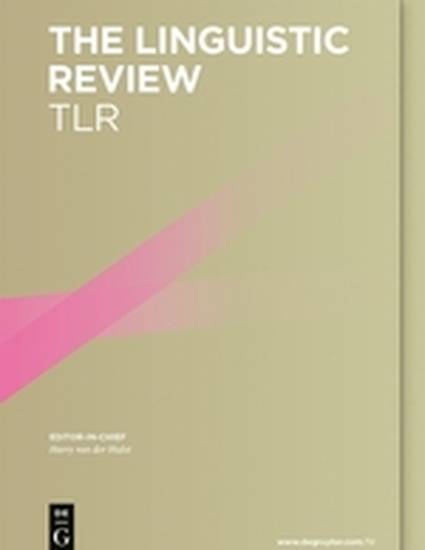
Article
Phase Theory and Prosodic Spellout: The Case of Verbs
The Linguistic Review
(2007)
Abstract
In this article we explore the consequences of adopting recent proposals by Chomsky, according to which the syntactic derivation proceeds in terms of phases. The notion of phase – through the associated notion of spellout – allows for an insightful theory of the fact that syntactic constituents receive default phrase stress not across the board, but as a function of yet-to-be-explicated conditions on their syntactic context. We will see that the phonological evidence requires us to modify somewhat the theory of which functional categories actually define a phase. Patterns of default, syntax-determined, phrase stress are argued to result from prosodic spellout requiring the highest phrase in the spellout domain to correspond to a major prosodic phrase in phonological representation, and carry major phrase stress.
Disciplines
Publication Date
2007
DOI
10.1515/TLR.2007.005, August 2007
Publisher Statement
De Gruyter Repository Policy:
https://www.degruyter.com/dg/page/576/repository-policy
De Gruyter allows authors the use of the final published version of an article (publisher pdf) for self-archiving (author's personal website) and/or archiving in an institutional repository (on a non-profit server) after an embargo period of 12 months after publication.
Journal homepage: https://www.degruyter.com/view/j/tlir
Citation Information
Kratzer, Angelika & Selkirk, Elisabeth (2007): Phase Theory and Prosodic Spellout: The Case of Verbs. The Linguistic Review 24 (2-3).
